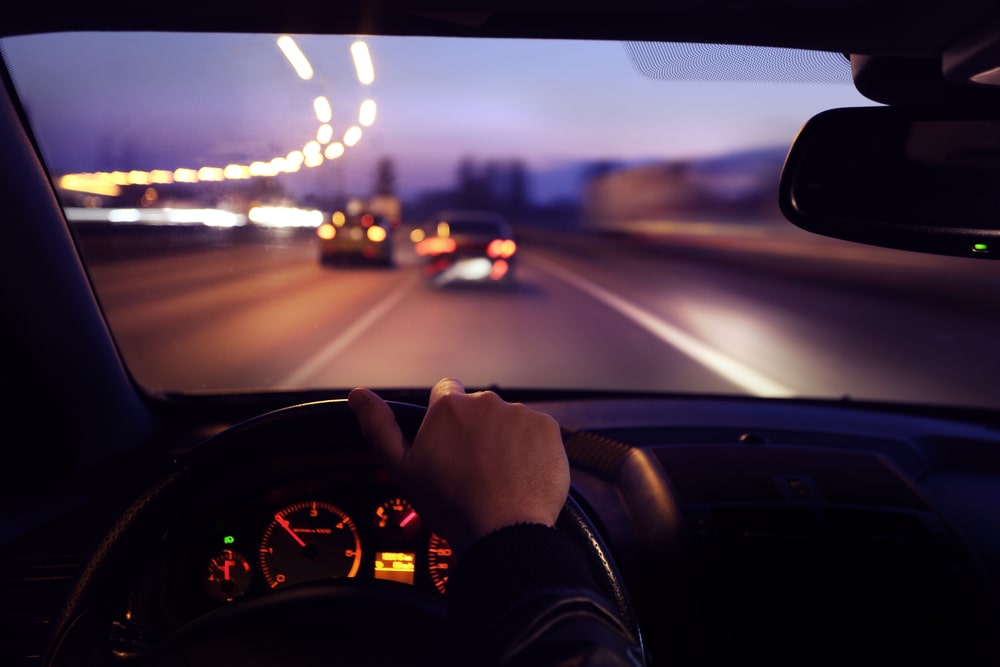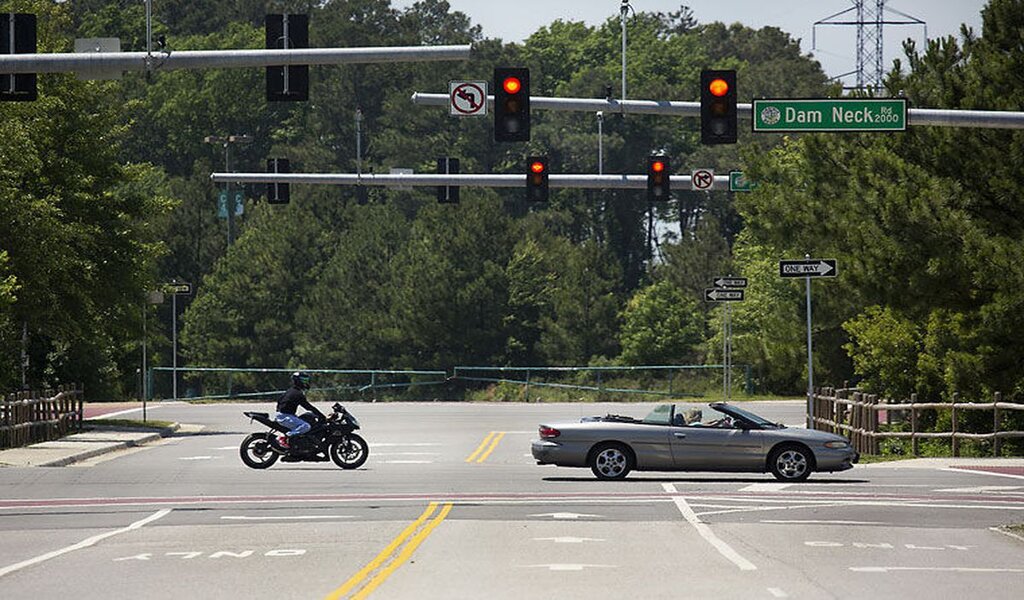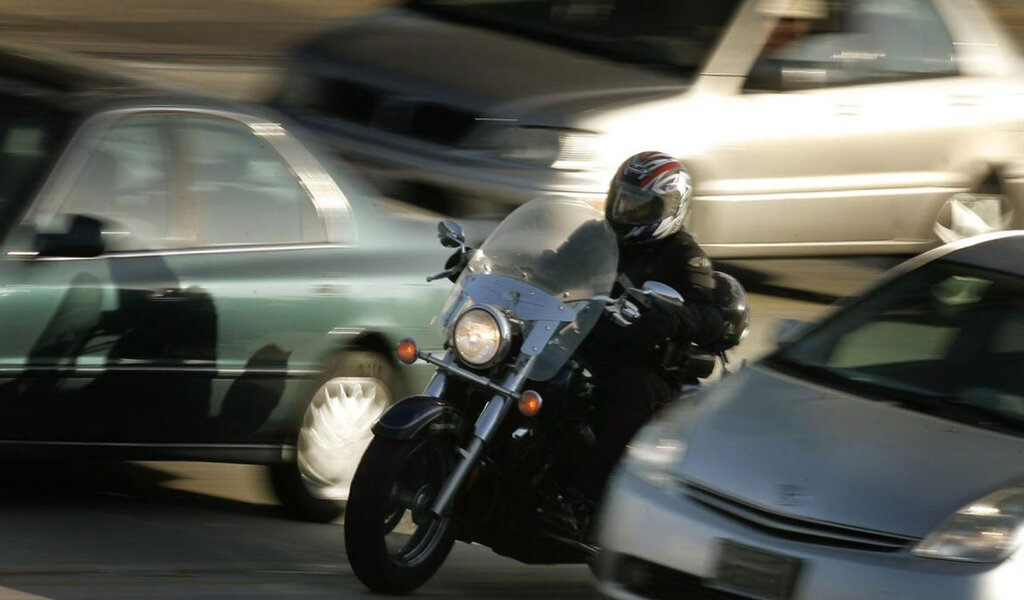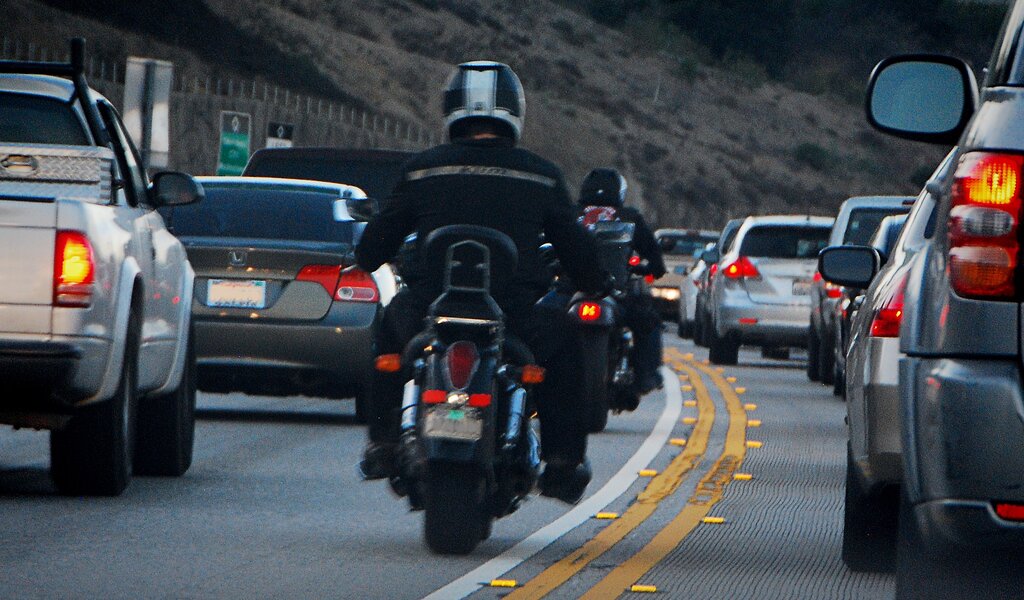It comes as no surprise that motorcycle accidents are some of the most deadly. According to the National Highway Traffic Safety Administration, more than 5,000 motorcyclists died in accidents in 2019. This alone accounted for 14% of all traffic fatalities in the United States. In addition, there were more than 84,000 motorcycle accident injuries, ranging from moderate to severe.
With an uptick in injuries and deaths, it’s clear that there are more motorcyclists on the road than before. Many of these riders are inexperienced, thus requiring other drivers to be more cautious around motorcycles. Unfortunately, the drivers of other vehicles frequently cause motorcycle accidents because of a lack of awareness. However, the following tips should help keep you and motorcyclists on the road safe.
Contents
- 1. Check Blind Spots During Lane Changes
- 2. Be Cognizant of Adverse Weather
- 3. Drive Carefully at Night
- 4. Always Use Your Turn Signal
- 5. Stay in Your Designated Lane
- 6. Follow Traffic Signals at Intersections
- 7. Watch for Lane Splitting Motorcycles
- 8. Be Aware of Turning Motorcycles
- 9. Don’t Drive Aggressively
- 10. Learn Hand Signals
- Conclusion
1. Check Blind Spots During Lane Changes
One of the most common causes of motorcycle accidents is failing to check a blind spot. Since motorcycles are small and quick, you must pay extra close attention to your blind spot when changing lanes or merging onto a highway. Side-view mirrors don’t provide enough coverage for spotting motorcycles traveling at higher speeds. In fact, once the front half of a motorcycle passes your rear bumper, it doesn’t show up on your side-view mirror. Even an extra second or two reduces the risk of an unintended collision.
2. Be Cognizant of Adverse Weather
Driving in wind, rain, or snow is much more difficult for motorcyclists than those riding in vehicles with four wheels. They not only lack visibility but also have a harder time maintaining traction with the road, increasing the risk of sliding. In conditions with heavy winds, the motorcyclists may sway as they try to keep balance. During inclement weather, slow down if you see a motorcyclist and give them more room to maneuver. Ideally, keep yourself about seven to eight seconds away from a motorcycle in front of you.
3. Drive Carefully at Night
Although many people have a habit of turning on high beams when driving at night, they cause problems for drivers going the opposite direction. If you notice a motorcycle approaching you, turn the high beams off. A good rule of thumb is that you should turn them off when any vehicle comes within 500 feet of yours. This is particularly important with motorcyclists since they need to see to maintain sufficient balance.

4. Always Use Your Turn Signal
Another common way motorcycle accidents occur is when a vehicle turns. When making a left-hand turn, make sure you watch for any motorcycles going the opposite direction and use your turn signal. If you see a motorcycle speeding by, don’t attempt to beat them. A few extra seconds is not going to make you late. In addition, if you need to turn and there is a motorcycle behind you, use your turn signal sooner than usual. This helps the motorcyclist slow down if needed.
5. Stay in Your Designated Lane
Like any other vehicle, motorcycles are entitled to their own lane of traffic. In fact, some states allow two motorcycles to share a lane of traffic. However, cars and other vehicles may not share a lane with a motorcyclist. It’s not only illegal, but it also leads to serious accidents, especially on highways or interstates. When a motorcycle drives beside you, don’t merge into their lane unless you are behind or in front of them, as you would with any vehicle.
6. Follow Traffic Signals at Intersections
According to McCormick & Murphy, P.C., intersections are particularly dangerous for motorcyclists, especially blind intersections. Many accidents occur when someone disobeys a signal and turns in front of a motorcyclist who has the right of way. Whatever the case may be, approach every intersection with caution and follow all traffic signals. Running a red light or turning during a red light greatly increases the risk of a fatal crash with motorcyclists.

7. Watch for Lane Splitting Motorcycles
Lane splitting is when a motorcyclist drives in between two lanes of traffic to get around quicker. While many assume this maneuver is illegal, it’s actually up to the local or state laws. For example, lane splitting is explicitly illegal in states like Colorado or Pennsylvania. However, California legalized lane splitting, and Utah allows it in certain situations. If you’re unsure about your state’s lane-splitting rules, check with your state’s highway patrol for applicable laws.
8. Be Aware of Turning Motorcycles
A little-known fact about motorcycles is that many don’t have self-canceling turn signals. This is more common in older models, but many motorcyclists drive these bikes. For this reason, if you see a motorcyclist activate their turn signal for an unusually long period of time, increase your distance so you aren’t surprised if they move.
9. Don’t Drive Aggressively
When driving a larger vehicle, many motorists may take more aggressive actions, such as quick lane changes or tailgating. This is incredibly dangerous for motorcyclists, especially if they need to make an immediate stop. A motorcyclist may use unsafe actions if you follow close behind or cut them off. Remember to share the road and be courteous.

10. Learn Hand Signals
Despite the prevalence of turn signals on motorcycles, some riders still use hand signals when turning. In the unlikely event that you come across a motorcyclist using hand signals, you should know what they mean and how to proceed. For example, when turning left, motorcyclists extend their left arm out flat. However, if they are turning right, they bend their left arm out at a 90-degree angle. These are just a couple of the signals you may see motorcyclists using.
Conclusion
By following these steps, you help ensure the safety of motorcyclists on the road. Always remember that almost all motorcycle accidents are severe. Motorcyclists don’t have the same protection as other motorists, so the injuries from an accident are often more devastating. Even a minor fender bender may result in a fatal tragedy. All motorists should drive responsibly and share the road with other vehicles to help prevent serious accidents. This courtesy also extends to motorcyclists.



